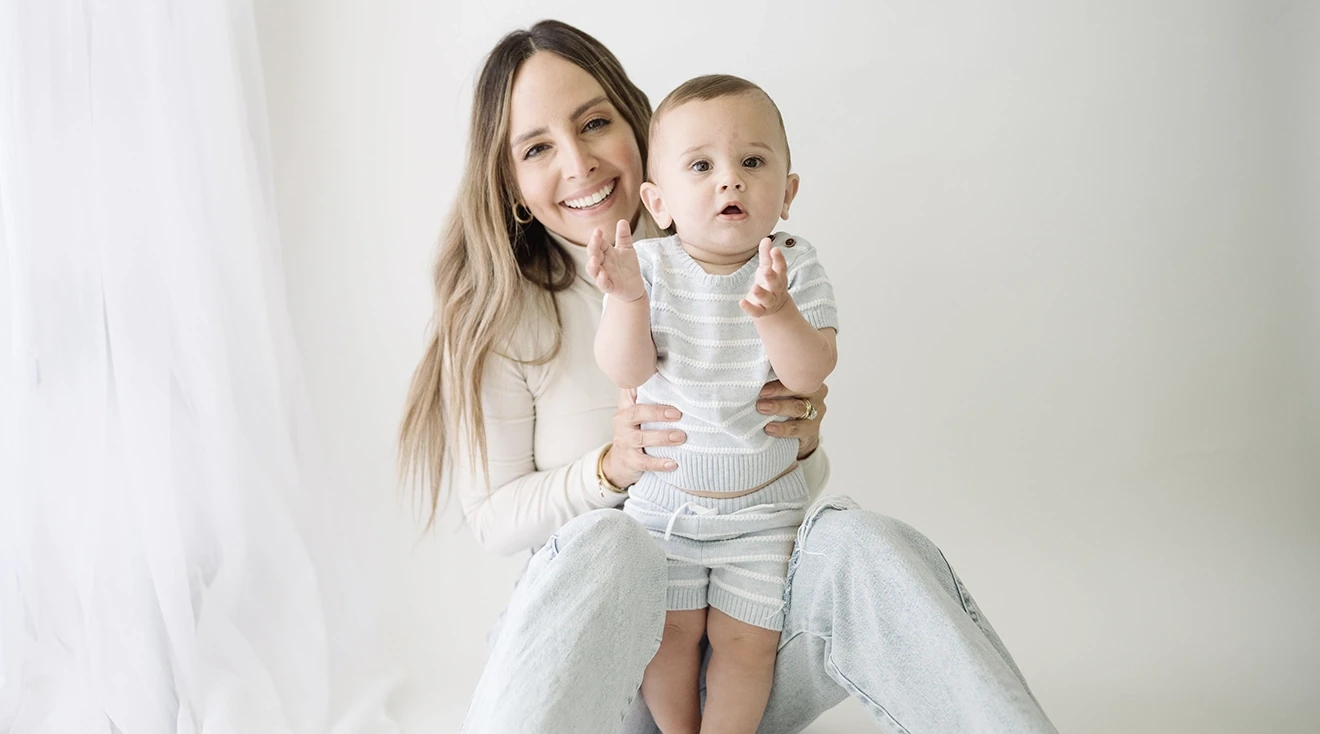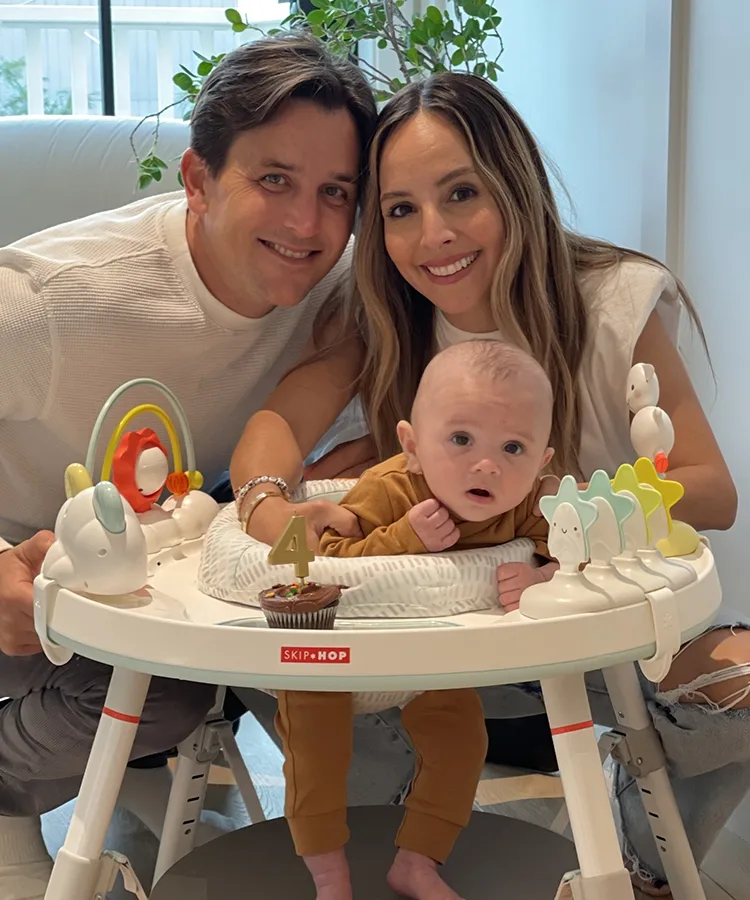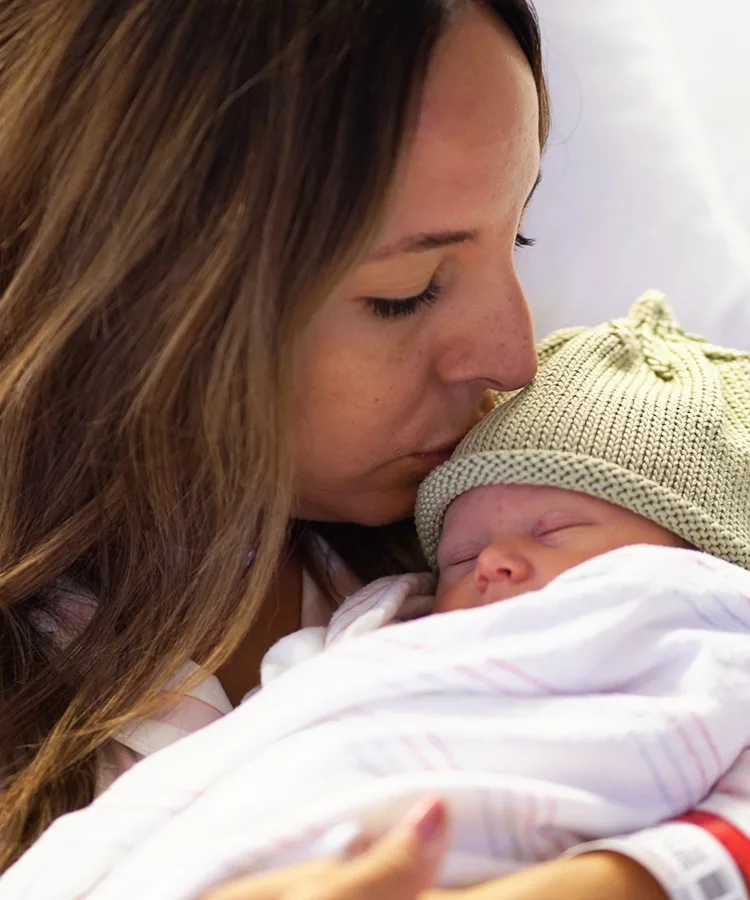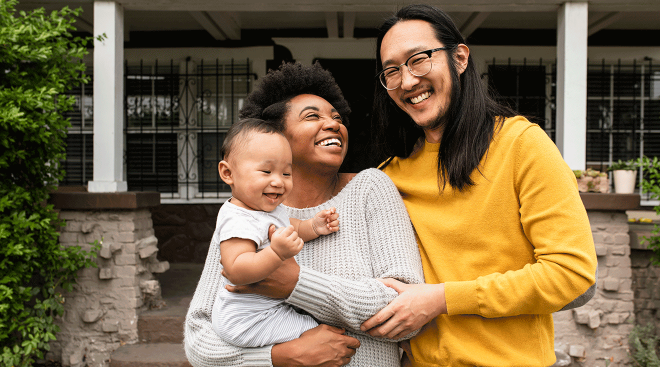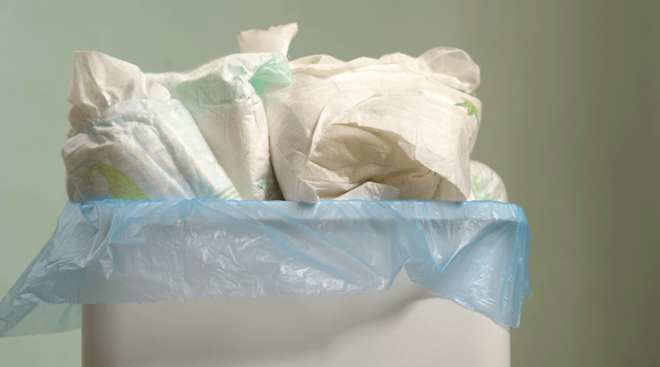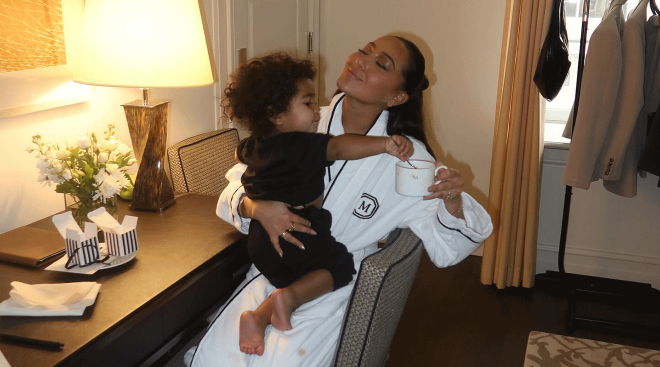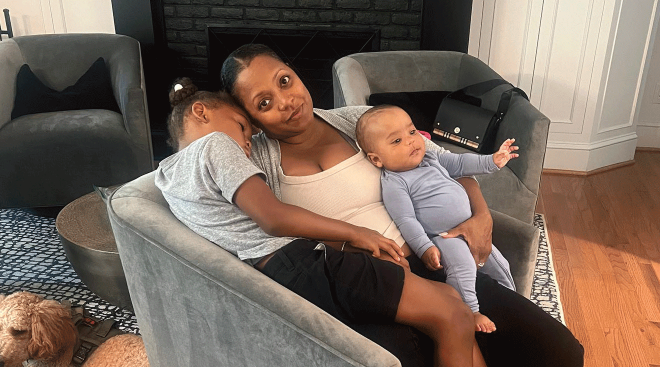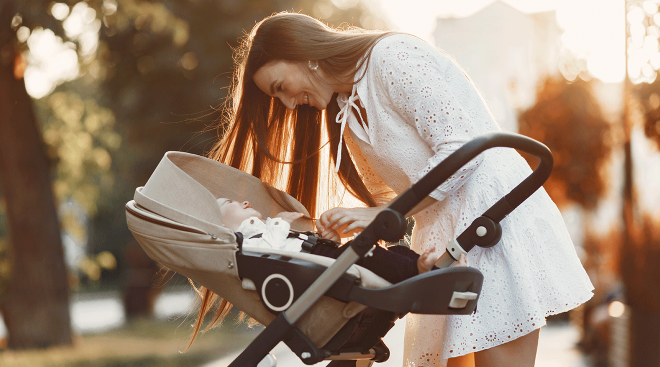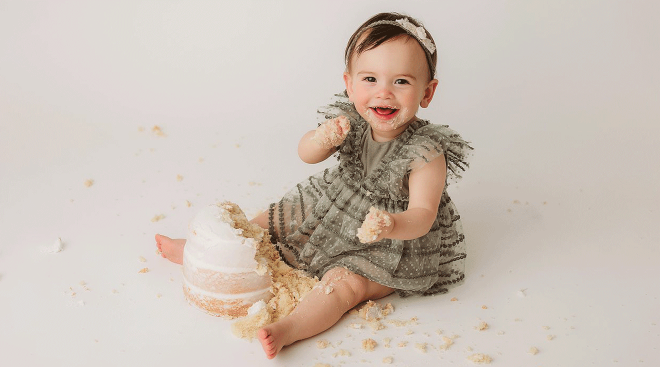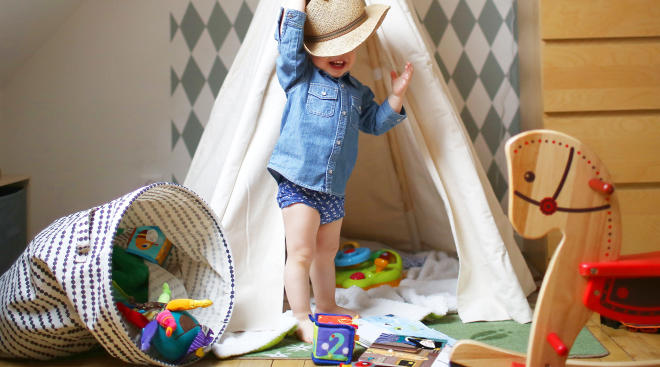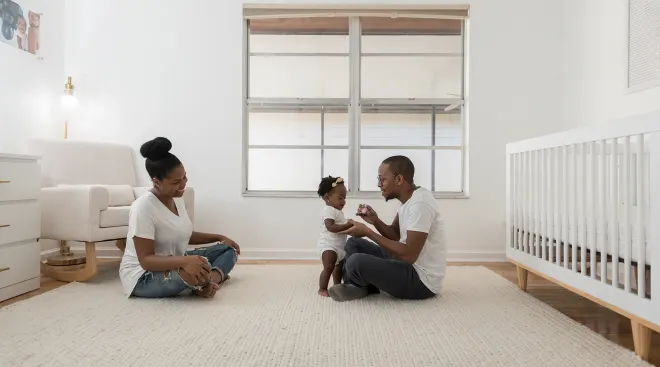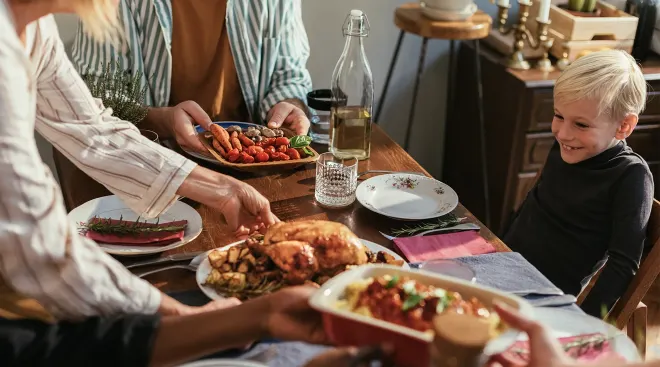TV Host Lilliana Vazquez on Her Journey to Parenthood
The path to parenthood isn’t always linear. Just ask Lilliana Vazquez, style expert, television host and new mom. Her journey to welcoming her son Santiago was anything but easy. She struggled with shame, stigma and a cultural barrier that made her foray into fertility treatments feel all the more harrowing. But now, Vazquez is using her voice and sharing her experience to help other prospective parents bravely navigate this emotionally charged and often tricky terrain. What’s more, at 42, she’s empowering moms to embrace their inner confidence and lose the guilt. Here, Vazquez chats with The Bump about her years-long struggle with infertility—and how her world (and perspective) have changed now that she has a little one of her own.
The Bump: You’ve been very open about the struggle you’ve experienced on your path to parenthood, your journey with IUI and IVF and facing uncertainty along the way. What was it like to be so vulnerable, and did you personally feel stigma as you first embarked on your fertility journey?
Liliana Vazquez: I started this in 2015. It wasn’t as talked about as it is now. A lot of it was because I didn’t want people to pity me—if that makes any sense. I didn’t want people to look at me and be like, “Oh, like, that’s so sad. She can’t have a baby, she can’t get pregnant, or, something’s wrong with her.” I’m first-generation American: I’m half Mexican, half Puerto Rican. And my mom is like a warrior woman through and through—tough as nails and such a hard worker; she fought for our family at every turn. That strength is incredibly inspiring, but it also doesn’t teach you how to be soft. It doesn’t teach you how to be vulnerable. And I think—for me—I don’t know why I thought that people would pity me. If anything, people would probably offer help and be super supportive… I just kind of wanted to keep it out of as many parts of my life as I could. Not that you can. Hindsight is 20/20. I know that now.
TB: There’s a disparity in education and access to fertility treatment among women of color. You’re committed to paving change; obviously, systemic change needs to happen. But on an individual level it can be incredibly intimidating and discouraging. What are some actionable steps that people facing fertility struggles can take?
LV: I think we have so much more education right now. And I think before you even venture into that world, you really have to do your homework. The reason that I say that is because care comes at all different levels. I saw multiple IVF doctors on my journey. I now know that if I had done more research early on, I would have made different choices; I would have definitely advocated for myself as a patient in a very different way. Education is such a critical component. I also think education in your native language is really important. You’re talking about something that is so deeply personal. And I know that even for my extended family, once I started sharing, my mom was like, “Is there information in Spanish?” She wanted to understand it on a different level. Education and access to those resources is really where you need to start… You might be the person that starts the conversation in your immediate family, or you might be the person that starts the conversation in your small community. And I think that that’s really important, because—especially the way I was raised—that’s where we find help and confidence.
TB: What advice would you give to someone who’s in the throes of fertility treatments?
LV: As seriously as you’re taking the medical advice—the shots, the ultrasounds, the scans, all of the appointments and the blood draws—that also needs to be met with mental health support. I think that is such a missing piece in the infertility world right now. We don’t treat IVF with mental health support. And you think about all of the loss that somebody experiences when they’re going through this. I don’t just mean a miscarriage or a failed transfer or an embryo that didn’t thaw. I mean the loss of everything—the loss of normalcy in your day-to-day life, the loss of relationships, the loss of joy, the loss of spontaneity… I hope that we’re at a place with mental health awareness that we understand how important it is to talk to somebody. I mean a real professional. And, see, that was the missing piece for me. That wasn’t something that was addressed by any of my specialists or any of my doctors—and I saw some of the best practitioners in the world. It wasn’t a part of my treatment. Why is that missing from the conversation? That’s the advice I would give to somebody else.
TB: In the past, you’ve spoken about reframing mom guilt and shifting your perspective. That said, I’m sure you still have moments when that signature mom-guilt feeling creeps. So what is the most recent example of this—and how did you flip the narrative?
LV: My husband threw me a surprise birthday party. And it was wonderful, but it was the first time I’d been out like that since my son was born in July of 2021. And I definitely had way too many margaritas. I woke up on Sunday with a killer hangover. All I wanted to do was sleep. But I also wanted to play with my baby because I hadn’t seen him since I left for my birthday party the day before. And, you know, I felt guilty. My husband was there, and my mom was there–so he was fully cared for in the best way possible. But I felt bad about sleeping in. I felt like, “Why can’t I do both? Why am I not capable of going out and celebrating myself and having a really good time with my friends and also waking up to take care of my son?” Well, because that’s just not possible. You know what I’m saying? Like, it’s not possible to do both things and be present in both things. I was really present on Saturday night, and I can’t tell you how badly I needed that. And that’s [how] I got over the shame.
TB: And this sort of ties into the next question, which is about that trigger word: balance. You’re creating your own version of balance with parenting and work and wearing so many different hats. So how do you juggle your priorities? How do you know which hat to wear at all times?
LV: I’ve learned how to ask for help—and also really understand that it doesn’t make me weak. It doesn’t make me any less strong. It’s just that I can’t be all things at all times. And like most women, we are juggling. We work, we’re juggling our babies, we’re juggling our marriage and we’re juggling the normal relationships—or juggling the invisible load, right? And so I think you have to be really confident and comfortable asking for help. And I’ll also say this—my therapist said this to me: Don’t qualify the help… Be accepting of it, be grateful for it. I know I would do that a lot with my mom or my mother-in-law. I’d be like, “Oh, but they aren’t really great at mealtime.” Okay, but it’s one meal out of a million meals that my son’s going to eat in his entire lifetime, right?… There are people out there that don’t have family nearby or that can’t hire a babysitter. So whenever you can get [help], be really grateful for it.
TB: So your baby is 9 months old—which means you’ve technically been out of the fourth trimester for six whole months. That transition into parenthood is essentially one big learning curve, and you have this brand new, helpless human being to take care. If you could go back to those early days, what advice would you give yourself?
LV: I would probably give myself a lot more grace. It felt like everything was so overwhelming—and I think that’s the hormones. But I would just give myself a lot more space and grace to mess up and know that I’m not going to permanently damage this baby. Like, we’re kind of figuring it out together, right? It’s like a little dance that you do 100 times a day… I think as a first-time mom, everything feels like life and death, everything feels black and white. And that’s not really accurate. There’s a sliding scale. And there’s a lot of gray in the middle. As I moved out of that fourth trimester and moved out of a lot of those kind of binary decisions—like formula vs. breast milk—I was able to find a lot more acceptance of myself, and also acceptance of other people. And acceptance of my son—he’s not going to be the same baby every day. Just because he has a bad night doesn’t mean he’s going to be a bad sleeper for the rest of his life… It’s really not that serious. You know, I’m an overachiever and I’m a control freak, and I had to learn to let go. I feel like my son has been my biggest teacher in that; it took me 41 years to finally loosen up and understand that the world doesn’t begin and end with control.
TB: A lot of what you’re saying comes with perspective. You became a mom in your 40s. What do you think has been the biggest benefit of becoming a mom in this stage of life?
LV: I work in a very tough industry, and I was used to being a feedback junkie when I was in my early 30s. I started to move away from that as I got into my later 30s—and definitely now. I got really, really good at tuning out the noise. And as a mother, there is so much noise. At 41, I’m really confident in who I am as a person. And that kind of applies to who I am as a mom—at least in some areas… Tuning out the noise and being able to do that for myself in the ‘mom world’ was critical, and I think that does come with age. It comes from a place of [knowing] I am a 42-year-old successful woman. I have survived this far; I have succeeded. I am confident, and I need to bring all of that into what I think is probably the best role I’m going to have, which is being a mom.
TB: You’re embracing confidence in your approach to parenting. If you had a parenting mantra, what would it be?
LV: When I was going through infertility, I would always say to myself “I am worthy of becoming a mother.” It makes me want to cry right now. I would say it to myself literally every morning when I woke up because I felt like that was being taken away from me every single day—like every time something bad happened. And so now that I am a mother, I say kind of the same things to myself, but I take a different approach to it. “I am worthy of being the best mom I can be to Santiago.” And that really helps.
TB: Fashion has always been a really big part of your life. Has motherhood changed your personal style or your approach to fashion in any way?
LV: No, I haven’t changed the way that I dress. I think being pregnant inspired me to be more of a risk-taker… Why would you abandon those things when you are living in one of the most beautiful physical states of your life? So no, I didn’t change anything, and I haven’t changed anything now as a mom. I wear what I want to wear—and it’s really empowering.
TB: What’s your go-to form of self-care now that you’re a parent? LV: There’s the self-care that I know is really good for me, which is Pilates. It’s good for me; it makes me a better person. I had a c-section—so with all the pelvic floor stuff that I had to go through, Pilates is the best thing that I can do for myself. But if I’m being honest, my self-care is watching Selling Sunset or Vanderpump Rules.
TB: Fun final question: What would you consider your superpower?
LV: Oh, my superpower! My superpower is making my son smile. He’s not the smiliest of babies. Like, there are babies that have a disposition where you actually have to work for the giggles and work for the smile. My son is definitely somebody that you have to work for smiles. And the second I discovered that, I was like, “Oh no, you are going to always give Mama smiles.” And so my superpower is getting my son to smile—even if he’s mid-tears. And I can’t tell you, I get chills just thinking about it—because it’s the best thing that I do in my day.
Navigate forward to interact with the calendar and select a date. Press the question mark key to get the keyboard shortcuts for changing dates.

































